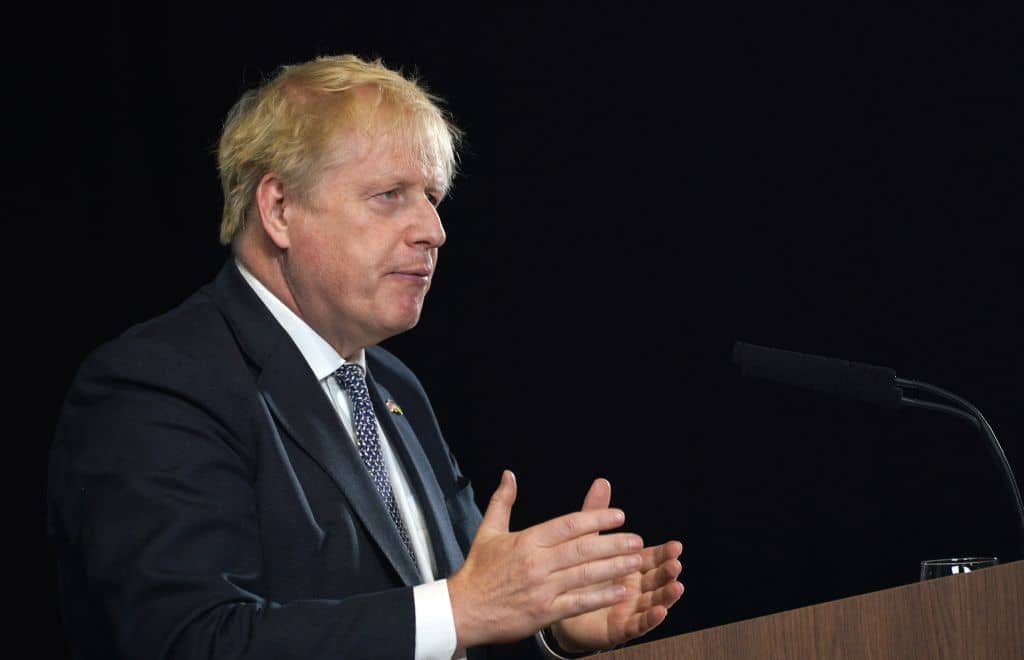As part of his revival (and survival) strategy, Boris Johnson is trying his hardest to convince the public and fellow MPs that he can get the cost of living crisis under control. But did today’s speech help him make that case?
His wide-ranging speech in Lancashire covered a vast array of economic, policy and trade topics, which he struggled to pull into a cohesive theme. ‘We do not grow many olives in the UK,’ he pointed out. ‘Why do we have tariffs on bananas?’ Both excellent points when it comes to liberalising trade, but not obviously at the top of people’s priority lists when it comes to tackling energy bills in the next few months.
‘We do not grow many olives in the UK,’ he pointed out. ‘Why do we have tariffs on bananas?’
If there was one point the PM wanted to make, it seemed to be that we can all be ‘confident that things will get better, that we will emerge from this a strong country with a healthy economy.’ But repeated pledges that ‘things will get better’ isn’t what inspires confidence for businesses or consumers; it’s concrete policy action that makes a difference. And this is precisely where Johnson’s government continues to fall short.
Johnson wanted to emphasise a commitment to economic growth, proclaiming ‘the answer to the current economic predicament is not more tax and more spending. The answer is economic growth’. Yet there were no serious supply-side reforms to go along with this vision. Take the housing announcements. Having abandoned planning reform over a by-election, Johnson has opted instead for gimmicks and government support schemes to help get people on the housing ladder. But with a dramatic under-supply of homes increasingly understood to be one of the biggest problems in the housing market, today’s extension of right-to-buy could actually make the housing crunch worse: similar to the help-to-buy scheme, it creates more demand in the housing market without increasing the number of homes, thereby upping housing prices for everyone apart from the protected minority that will benefit from the scheme. And as Ross Clark points out on Coffee House, this all assumes that mortgage lenders will go along with Johnson’s proposals, which include benefit payments as part of mortgage affordability checks. Without state-backing (read: taxpayer-backing) of these mortgages, it’s difficult to see, in practice, how many of these mortgages get approved.
The economic announcements the country really needs to hear are about how the government will reduce the tax burden, which the PM promised would happen, announcing his government would ‘start cutting taxes’ alongside welfare spending. But Johnson’s spending addiction is a key reason taxes have been going up in the first place, with the National Insurance levy to pay for his social care scheme serving a case in point. As Katy Balls revealed last night, Chancellor Rishi Sunak has no plans to rush tax cuts, telling the 1922 Committee that his goal remains to reduce the tax burden, but only when it’s fiscally prudent to do so. And as long as Johnson won’t budget on spending, the scope for tax cuts remains narrow, and will struggle to happen for some time to come.
Johnson speech was a passionate call for a low tax, conservative agenda. But we’ve been here before on many occasions, where the Prime Minister talks the right talk. After nearly three years in No. 10, every speech that promises a smaller state becomes harder to believe, as there has, so far, been very little attempt to deliver this.
As well, speeches like this without clear-cut announcements – that either offer cash support to deal with price hikes (as Sunak did in both February and May with multi-billion pound support packages) or tax cuts – risk causing more confusion than they inspire confidence, as it seems more like a government grasping for policy than crafting policy. Johnson promises more announcements are coming down the line. But if today’s updates reflect what we’ll be getting in the future, this attempted reset was really just rehash of half-baked ideas that do little to ambitiously tackle the serious problems faced by Britons.







Comments